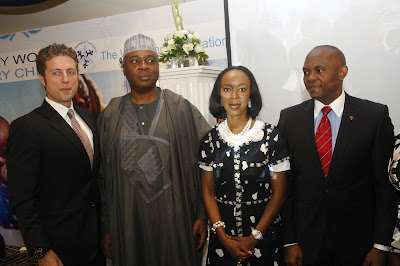Telemedicine and e-health: Antidote towards reaching Nigeria’s MDGs

There is no gain saying that the nation’s healthcare sector since independence has been plagued with the challenge of achieving the delivery of quality healthcare to the majority of its populace. These are evident in the state of inadequate infrastructure and lack of basic amenities some healthcare institutions in the country are confronted with. Though several governments in the past and present have carried out one form of refurbishment of facilities at these health institutions, some existing health services are either not affordable or inaccessible to the vulnerable group especially the poor and people living in rural and underdeveloped area. This can be reflected in the nation’s health induces which shows that Nigeria has one of the worst maternal, newborn and child mortality statistics in the world with an estimated 52,900 Nigerian women and 250,000 newborn dying annually from causes that are largely preventable if appropriate interventions are made availab





